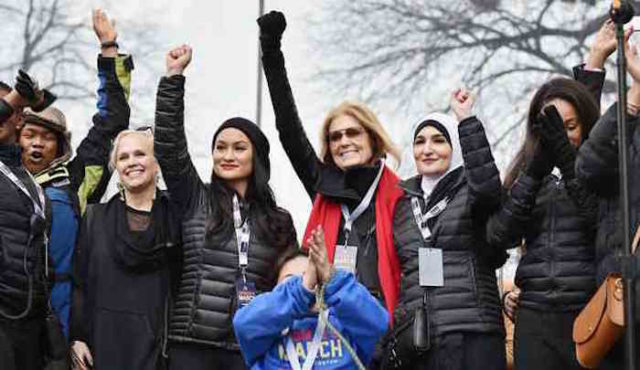“Being unable to cause might to obey justice, men have made it just to obey might.” — Blaise Pascal
“Progressive man” refuses to recognize the crimes of Islam, not because he is naïve, fine-tempered or tolerant. He does it because, unconsciously or subconsciously, he has already accepted Islam as a religion of salvation. As he accepted Stalinism, Hitlerism, Maoism and the “Khmer Rouge” before it…
Joseph de Maistre, a French aristocrat of the early 19th century, argued that man cannot live without religion, and not religion as such, but the tyrannical and merciless one. He was damned and hated, they called him an antipode of progress and freedom, even a forerunner of fascism; however, progressives proved him right again and again.
In their nihilistic ecstasy, Homo progressicus threw God off the pedestal, trampled upon the humanistic ideal of Petrarch, Alberti and Leonardo Bruni, who relied on Reason and strove for virtue, and … found themselves in complete and gaping emptiness. They realized that they could not live without the God-man — the idol, the leader, the ruler, who would rely on the unshakable, ruthless idea of salvation — not in the other world, but in this real world here and now. And with all the passion so inherent to their shallow, unstable, infantile nature, they rushed out in search of their “prince on a white horse.”
The idols of the progressives were tyrants armed with the most progressive ideology: Robespierre, and after him Stalin, Mao, Pol Pot, Fidel Castro, Hugo Chavez, and finally — Islam.
In the 20th century, the Western intelligentsia was infected with red and brown bacilli.
Walter Duranty ardently denied the Holodomor. Bernard Shaw and Romain Rolland justified OGPU terror and the kangaroo court in Moscow; Aragon, Barbusse (the author of the apologetic biography of Stalin: Stalin. A New World Seen Through the Man) and Jean-Richard Bloch glorified “the Father of nations.”
“I would do nothing against Stalin at the moment; I accepted the Moscow trials and I am prepared to accept those in Barcelona,” said Andre Malraux during the massacre of anarchists from POUM by Communists in Barcelona in 1937.
Let’s guess: who is writing about whom? “Lonely overbearing man… damned disagreeable,” “friendly and commonplace,” possessing “an intelligence far beyond dogmatism”… “sucked thoughtfully at the pipe he had most politely asked my permission to smoke… I have never met a man more fair, candid, and honest.” Got it? It was Stalin, as portrayed by H. G. Wells.
How many sufferings – Solzhenitsyn recalled — were caused by progressive Western journalists, who after having visited the GULAG, praised Potemkin villages with allegedly heated barracks where political prisoners used to read Soviet newspapers sitting at clean neat tables? Indeed, Arthur Ransome (The Guardian), an American journalist and a fan of Mao, Agnes Smedley, New York reporter Lincoln Steffens (after the meeting with Lenin he wrote,“I have seen the future and it works”), Australian-British journalist Leonore Winter (the author of the book called Red Virtue: Human Relations in the New Russia) and many others sympathized with the Bolsheviks and the Soviet Union. Juan Benet, a famous Spanish writer, suggested “strengthening the guards (in GULAG), so that people like Solzhenitsyn would not escape.” The Los Angeles Times published Alexander and Andrew Cockburn, who were Stalin’s admirers.
Hitler? Knut Hamsun, Norwegian novelist who won the Nobel Prize, described Hitler in an obituary as a “fighter for humanity and for the rights of all nations.” The “amorousness” of Martin Heidegger for the “leader of the Third Reich” is well known. In the 1930s, the Führer was quite a respectable person in the eyes of the mass media. Anne O’Hare McCormick – a foreign news correspondent for the New York Times (she got Pulitzer Prize) — described Hitler after the interview with him: he is “a rather shy and simple man, younger than one expects, more robust, taller… His eyes are almost the color of the blue larkspur in a vase behind him, curiously childlike and candid… His voice is as quiet as his black tie and his double-breasted black suit… Herr Hitler has the sensitive hand of the artist.”
The French elites were fascinated by Hitler. Ferdinand Celine said that France would not go to “Jewish war,” and claimed that there was an international Jewish conspiracy to start the world war. French Foreign Minister Georges Bonnet rendered honors to Ribbentrop, and novelist, essayist and playwright Jean Giraudoux said that he was “fully in agreement with Hitler when he states that a policy only reaches its highest form when it is racial.”
The Red Guards of Chairman Mao caused deadly convulsions in China and ecstatic rage in Jean-Paul Sartre and Simone de Beauvoir, Jan Myrdal, Charles Bettelheim, Alain Badiou and Louis Pierre Althusser. In Paris, Barbusse and Aragon created “the pocket monster” — Enver Hoxha; at Sorbonne University, Sartre worked out “the Khmer Rouge Revolution” of Pol Pot, Hu Nima, and Ieng Sary. Noam Chomsky characterized the proofs of Pol Pot’s genocide as “third rate” and complained of a “vast and unprecedented propaganda campaign against the Khmer Rouge.” Gareth Porter, winner of the Martha Gellhorn Prize for Journalism, said in May 1977: “The notion that the leadership of Democratic Kampuchea adopted a policy of physically eliminating whole classes of people was …a myth.”
In the 70’s, the whole world already knew the truth about the Red Guards. However, German youth from the Socialist Union of German Students went out on demonstrations with portraits of the “Great Helmsman” and the song “The East is Red.” In the USA, they went into the streets holding red flags and portraits of Trotsky and Che Guevara, and dream of “Fucking the System” like their idol Abbie Hoffman. The hatred of “petty bourgeois philistines,” as Trotsky named ordinary people, together with the dream of guillotines, bayonets, and “red terror,” keep inspiring Western intellectuals like Tariq Ali, the author of the revolutionary manual Trotsky for Beginners.
“The middle class turned out to be captured by ‘bourgeois-bohemian Bolshevism,’” Pascal Bruckner wrote.
Stalin, Mao and Pol Pot passed away, but new heroes appeared in their places. Leading employees of CNN – reporter Peter Arnett, producer Robert Wiener and director of news department Eason T. Jordan – had excellent relations with close associates of Saddam Hussein, pretending they didn’t know anything about his atrocities. Hollywood stars set up a race of making pilgrimages to Castro and Chavez. Neo-Marxist professors and progressive intellectuals, such as Dario Fo, Jean Baudrillard and Martin Amis, welcomed the triumph of al-Qaeda on September 11.
The romanticization of the “forged boot” and “iron hand,” the worship of “lonely overbearing” men with “the sensitive hand of the artist” — this explains the amazing easiness with which recent anarchists, pacifists, Marxists, atheists, after having changed a couple of ideologies, burden themselves with the most primitive, barbaric and despotic religion of our time: Islam.
What they crave for is not religion as such. They don’t want Buddhism, Bahaism, Zoroastrianism, or even the mild Islam of the Sufi or Ahmadiyya version. They want a religion that would crush them, rape their bodies and souls, and destroy their ego — one that would terrify them and make them tremble with fear, infirmity and impotence.
Only bloodthirsty medieval Islam is able to do this today. It alone possesses unlimited cruelty and willingness to burn everything on its way. And they gather like moths flying to the flame: communists Roger Garaudy, “Carlos the Jackal,” Trond Ali Linstad, Malcolm X, Alys Faiz; human rights defenders Jemima Goldsmith, Keith Ellison, and Uri Davis, the fighter against Zionism for the rights of the Palestinians. Fathers favor Castro, such as Oliver Stone; their sons accept Islam, such as Sean Stone. According to a public opinion poll conducted in August 2014 (Madeline Grant, Newsweek), “16% of French citizens support ISIS.” There are 7% to 8% of Muslims living in France. Who makes up the rest 8% to 9%?
Ken Livingstone, Jeremy Corbyn, John Brennan, Hollywood stars, Ylva Johansson, Sweden’s Integration Minister, who like her boss Stefan Löfven claimed that “there was no connection between crime and immigration”; Michael Fabricant, a former vice-chair of the Tory party, who said that “some conservative Anglicans are the same as ISIS”; German politicians that established a media watchdog to “instruct the press to censor ethnicity and religion in crime reports” (a modification of Soviet censure); the Chief Justice of England and Wales, Lord Phillips, who believes that it is inevitable to recognize Sharia courts in Great Britain; atheist-apologist for Islam (O my God!) CJ Werleman; Canadian Liberals, who support the anti-Islamophobia motion; Georgetown professor Jonathan Brown, who justifies slavery and raping of female slaves; Wendy Ayres-Bennett, a UK professor who is urging Brits to learn Urdu and Punjabi to make Muslim migrants feel welcome; Ohio State University, that offered a course on “how Muslims helped build America”; the Swedish state-owned company Lernia encouraging the replacement of standard Swedish with the “migrant-inclusive accent”; American feminists with the slogans “Allahu akbar” and “I love Islam,” who endorse the BDS movement; Swedish feminists wearing burkas in Iran; “proud feminists” such as Elina Gustafsson and Gudrun Schyman defending Muslim criminals who raped Swedish girls – all of them and thousands of others have already converted to Islam, if not de jure, then de facto.
They appeal to Islam to escape from their fears, complexes, helplessness, and uselessness. They choose the despotism of body and spirit to deprive themselves of their freedom – the freedom that has always been an unbearable burden for their weak souls full of chimeras. They crave slavery.
They are attracted by Islam today, but it’s not about Islam. It’s about them. If Islam is defeated tomorrow and a new Genghis Khan appears with the “religion of the steppe,” or the kingdom of the Aztecs rises with priests tearing hearts from the chest of living people, they will passionately rush into their embrace. They are yearning for tyranny, and will destroy everything on their way for the sake of it. Because of them, “we shall leave this world here just as stupid and evil as we found it upon arrival.” (Voltaire)
Alexander Maistrovoy is the author of Agony of Hercules, or a Farewell to Democracy (Notes of a Stranger).
RELATED ARTICLES:
Islamic State hackers release ‘kill list’ with 8,786 targets in U.S., UK
Video: Harvard students say Trump is more dangerous than the Islamic State





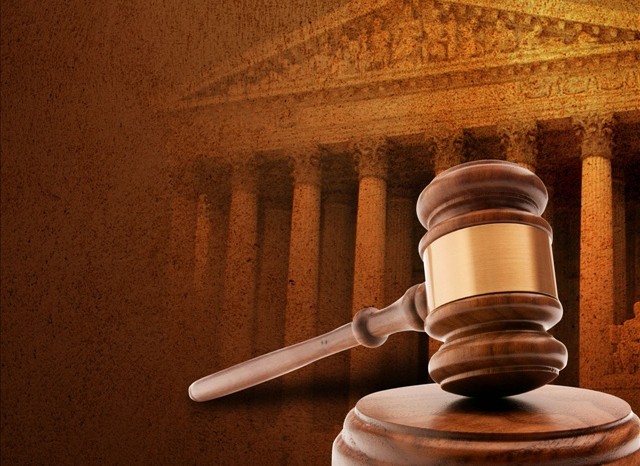
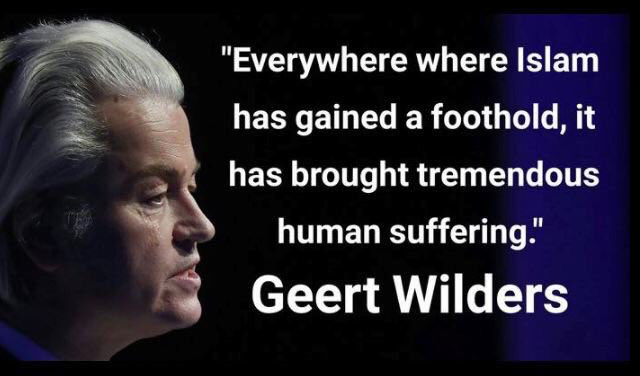

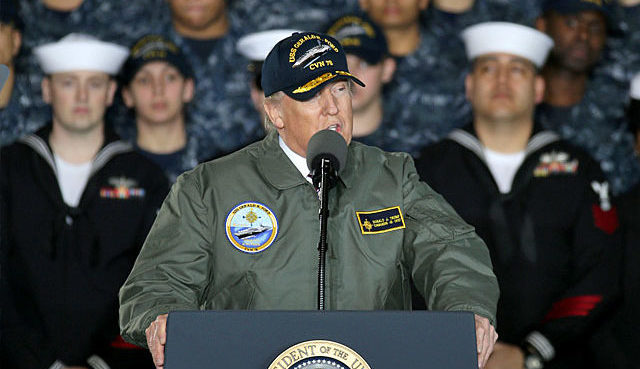

 In 2007 the CBO estimated that there were 12 million illegal aliens present in the United States.
In 2007 the CBO estimated that there were 12 million illegal aliens present in the United States. This was my focus in my article,
This was my focus in my article, 
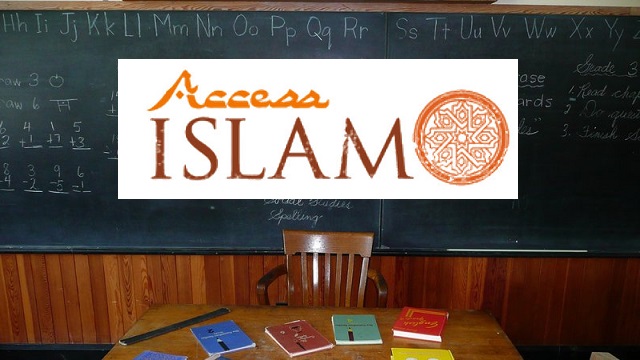


 In the
In the 






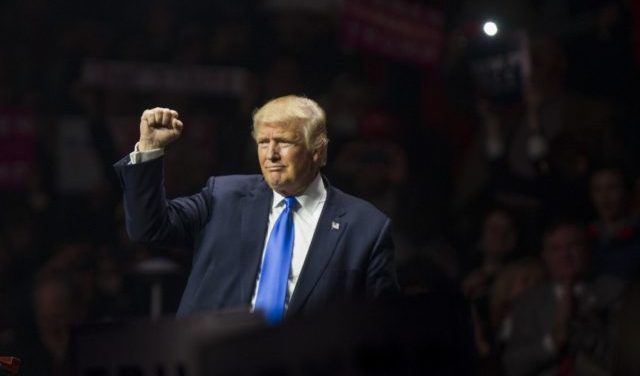

 Some conservatives, isolationists and “Peaceniks” miss the point. Putin and Assad were testing U.S. tolerance … how far would President Trump let them go to establish control in the Syrian civil war? The U.S. President gave a clear, decisive, immediate answer … not that far. This was very refreshing, and needed after 8 years of weakness in the face of similar tests.
Some conservatives, isolationists and “Peaceniks” miss the point. Putin and Assad were testing U.S. tolerance … how far would President Trump let them go to establish control in the Syrian civil war? The U.S. President gave a clear, decisive, immediate answer … not that far. This was very refreshing, and needed after 8 years of weakness in the face of similar tests.
